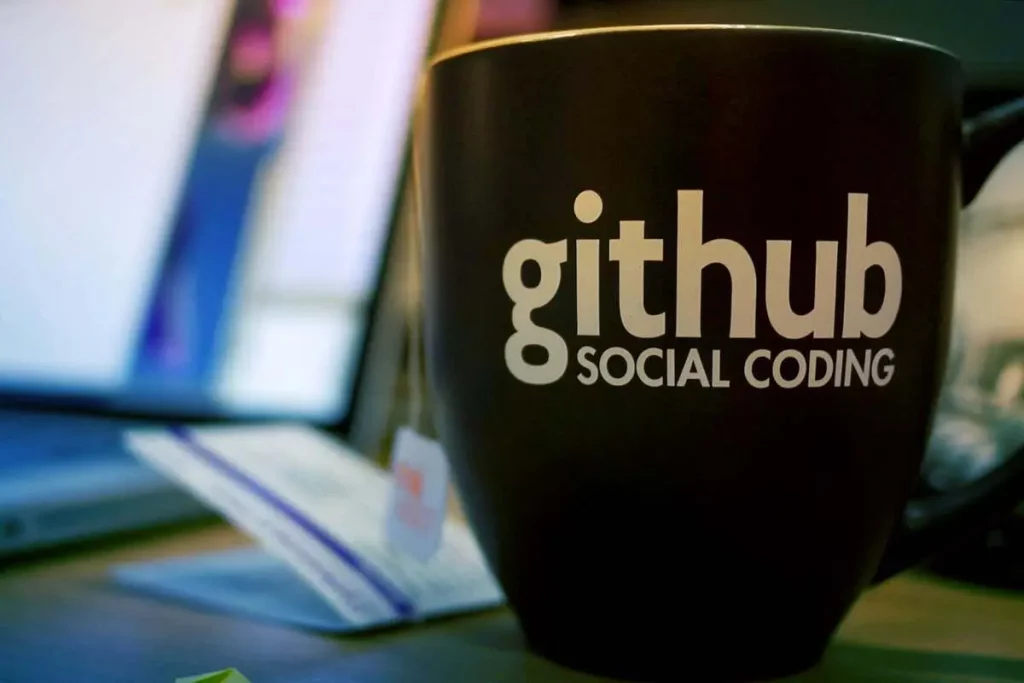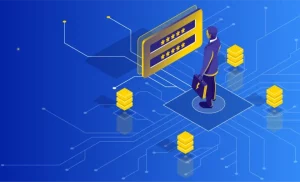GitHub’s all-in bet on AI may overlook Git

Not everyone wants AI to do everything for them. Will the risk of losing transparency and visibility into code change how GitHub made collaborative coding so powerful?
Did GitHub just jump the shark? At GitHub Universe last week, GitHub CEO Thomas Dohmke declared, “Just as GitHub was founded on Git, today we are re-founded on Copilot,” essentially telling developers, from here on, we’re all AI, all the time. Dohmke was selling a bold future intended to keep GitHub at the center of developers’ universe. But in the process, he may have overlooked all those developers who just want “GitHub to be a functional/reliable code hosting platform that supports multiple source control options, and to evolve source control ecosystems,” as open source developer Geoff Huntley counters.
Perhaps even more tellingly, GitHub’s hard shift to AI may be overlooking the transparency that made Git—and open source—so powerful for developers.
Moving beyond Git
Git didn’t originate source control for developers, but it dramatically improved it. Reflecting on his creation of Git, Linux founder Linus Torvalds lamented, “I really never wanted to do source control management at all and felt that it was just about the least interesting thing in the computing world.” Interesting or not, do it he did, enabling developers “to make their own private test repositories without having to worry about the politics of having write access to some central repository,” he explains. That “coding without drama” principle propelled code collaboration into the modern age.
Well, almost. It was really GitHub that took it to the next level, as Tobie Langel stresses: “GitHub gave open source visibility and lowered the playing field for collaboration by an order of magnitude.” GitHub made social coding incredibly easy, which delivered on the promise of open source.
Microsoft’s AI ambitions: Why is Copilot for Windows a dud?
GitHub doesn’t seem to see the dissonance. The company’s COO Kyle Daigle states, “We know developers love to learn by doing, and open source helps developers more rapidly adopt new technologies, integrate them into their workflows, and build what’s next.” What’s less clear is how GitHub views AI as the connective tissue between developers understanding and collaborating on code. “We expect open source developers to drive the next wave of AI innovation on GitHub,” he continues. But how are developers supposed to do that if they’re blocked from knowing how the code “sausage making” actually works?
Git made code and the collaboration around it permeable; AI does the opposite.
Old man yells at cloud moment
It’s not hard to see why GitHub would put all its chips on AI. According to its own data, 92% of developers are actively experimenting with AI. In fact, all the cloud providers are trying to outdo each other in pitching their plans for AI (perhaps at the expense of developers). There’s so much froth in AI right now, but also a sense that if companies don’t stake a claim in this land grab, they risk irrelevance, which again, makes GitHub’s move understandable.
It’s also arguably a Very Good Thing for developers, at least in part. GitHub paints the purpose of AI in glowing terms: “Everything we’re announcing is focused on one thing: bringing a holistic, productive, and seamless AI-powered developer platform to developers—no matter what you’re building.” The problem, however, is that none of the AI comes with the same inspectability that enabled developers to trust GitHub. There currently is no “open” in AI. However much we may want to talk about open source AI, it doesn’t exist. Not yet, anyway. AI remains a black box, one that cuts against the way open source developers have worked for decades.
GitHub’s bet seems to be that developers won’t care, that the magic of code completion will be a greater gain than losing visibility into source control is a loss. But so far, the response has not been enthusiastic. “I… am deeply uncertain that I actually want this at all,” notes outspoken open source advocate Adam Jacob. He’s not alone, as comments on his tweet attest.
Some of the backlash may be coming from “developers of a certain age,” as it were. As Ashley Williams adds, “I think they will win. I think they’ll make a boatload of money, and I think it might be a net positive for some parts of the industry. But as a ‘no longer their target audience,’ I’m certainly bummed out.” Put more positively by a less experienced developer commenting on Jacob’s tweet, “I think that’s the response of an expert practitioner seeing the Copilot results and knowing they can pretty quickly produce something better. As an infrequent programmer who often forgets, I find these tools make me MUCH more productive.”
Toward a better Git
This isn’t really the ultimate gripe that folks like Jacob or Williams have, however. I suspect most are on board the Simon Willison train. He has been an outspoken advocate for the added productivity AI can yield for developers. The worry is that by shifting the focus to AI, GitHub will lose focus on the original source of its popularity: making Git easy to use and collaborate around. Perhaps AI will now fill this role, but Git still has problems that need fixing, to Huntley’s point. Will these get buried in an avalanche of “let the AI take care of everything” marketing?
For companies with a large monorepo or, really, for the way most enterprise development works, GitHub’s standard pull request model doesn’t work well. This has given rise to stacked diffs in organizations like Google and Meta. “Stacking as a methodology empowers developers to bypass the delays of main branch dependency and permits continuous parallel development,” says Tomas Reimers, cofounder of Graphite. It’s a fantastic innovation, but not one we have with GitHub today, and not one we’re likely to get in an AI-focused GitHub of tomorrow.
“GitHub is at the center of all we do,” argues Darren Shepherd, chief architect at Acorn Labs. “I’d rather not [have it] go through some drastic hype-driven change.” Again, folks like Shepherd might not be the core audience for GitHub’s Copilot-anchored future. But in the rush to go all-in on AI, there’s reason to be cautious about losing the focus on the very thing that made GitHub work for millions of developers in the first place: the transparency of Git. Perhaps GitHub’s Copilot vision includes a doubling down on Git to further improve it, but if so, that got lost in the marketing hype.
It’s also arguably a Very Good Thing for developers, at least in part. GitHub paints the purpose of AI in glowing terms: “Everything we’re announcing is focused on one thing: bringing a holistic, productive, and seamless AI-powered developer platform to developers—no matter what you’re building.” The problem, however, is that none of the AI comes with the same inspectability that enabled developers to trust GitHub. There currently is no “open” in AI. However much we may want to talk about open source AI, it doesn’t exist. Not yet, anyway. AI remains a black box, one that cuts against the way open source developers have worked for decades.
GitHub’s bet seems to be that developers won’t care, that the magic of code completion will be a greater gain than losing visibility into source control is a loss. But so far, the response has not been enthusiastic. “I… am deeply uncertain that I actually want this at all,” notes outspoken open source advocate Adam Jacob. He’s not alone, as comments on his tweet attest.
Some of the backlash may be coming from “developers of a certain age,” as it were. As Ashley Williams adds, “I think they will win. I think they’ll make a boatload of money, and I think it might be a net positive for some parts of the industry. But as a ‘no longer their target audience,’ I’m certainly bummed out.” Put more positively by a less experienced developer commenting on Jacob’s tweet, “I think that’s the response of an expert practitioner seeing the Copilot results and knowing they can pretty quickly produce something better. As an infrequent programmer who often forgets, I find these tools make me MUCH more productive.”
Next read this:
- T PRACTICES FOR SOFTWARE DEVELOPMENT PARTNERSHIPS
- WHAT IS AMBIENT COMPUTING? EVERYTHING YOU NEED TO KNOW ABOUT THE RISE OF INVISIBLE TECH
- 6 FINOPS BEST PRACTICES TO REDUCE CLOUD COSTS
- CLOUD COMPUTING MEANS BIG OPPORTUNITIES - AND BIG THREATS
- UNMASKING THE ILLUSION: ARE WE BUILDING SMARTER DEVELOPERS OR SHORTCUT SPECIALISTS?
- THE COMPANY ANNOUNCED A DEEP DIVE INTO GENERATIVE AI WITH A SUITE OF CLOUD-BASED TECHNOLOGIES THROUGH AWS.
- HOW TO PREVENT A DDOS ATTACK WITH NGINX
Resource: Carey, S. (n.d.). Devs don’t want to do ops. InfoWorld. https://www.infoworld.com/article/3669477/devs-don-t-want-to-do-ops.html

- May 23, 2023
How to prevent a DDOS attack with NGINX
HOW TO PREVENT A DDOS ATTACK WITH NGINX Image:...

- May 11, 2023
What is ambient computing? Everything you need to know about the rise of invisible tech
WHAT IS AMBIENT COMPUTING? EVERYTHING YOU NEED TO KNOW...

- May 10, 2023
Cloud computing means big opportunities – and big threats
Cloud computing means big opportunities – and big threats...

